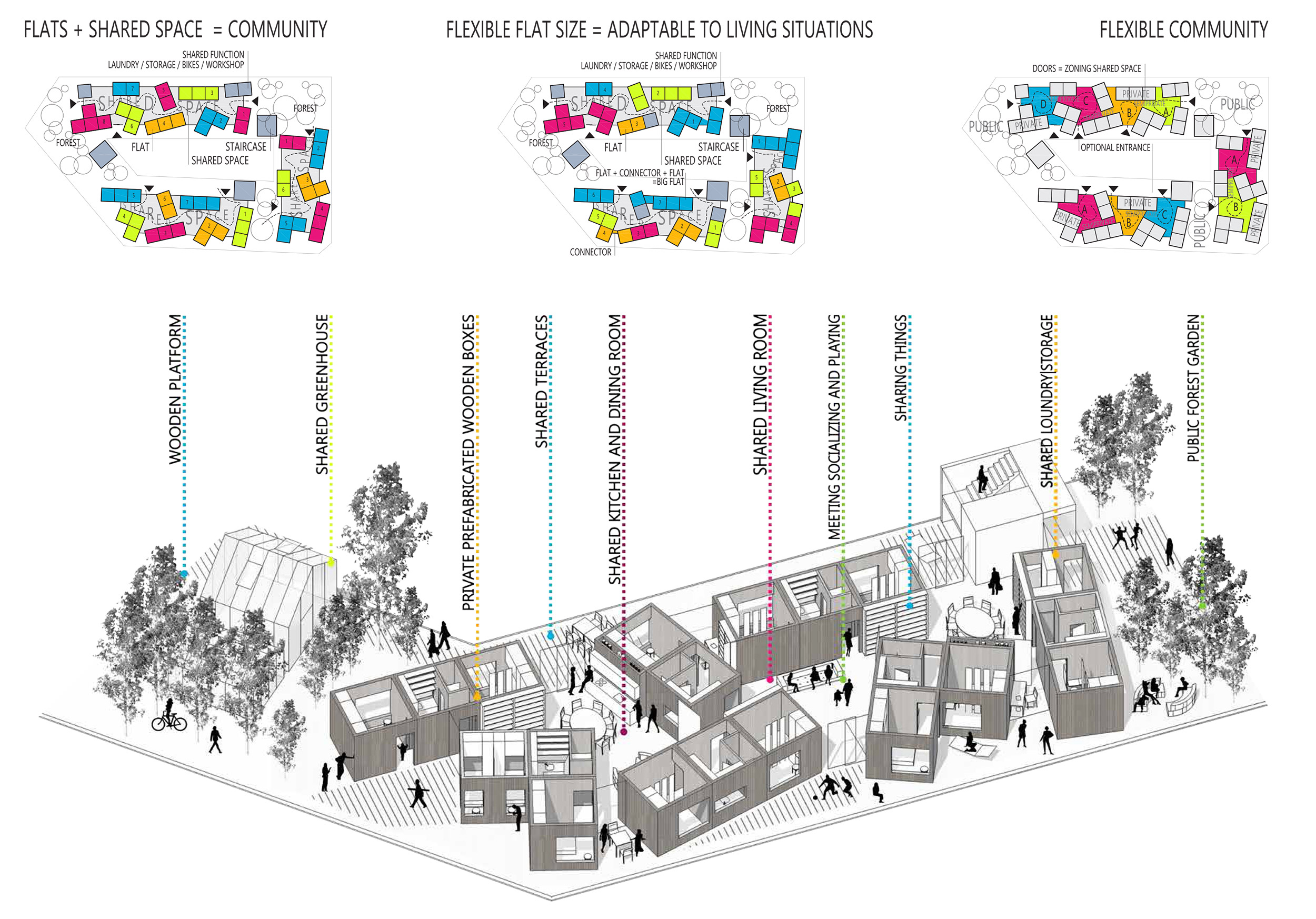URBAN SUPER FOREST - IMAGINE A CITY YOU CAN NOT SEE ON GOOGLE EARTH
In 2017 a group of citizens realized a rooftop extension shaped like terraced housing platforms at 1st district of Vienna. These platforms where like stacked little paradises covered with dense vegetation. Designing homes based on their own visions of an ideal living environment, they got avantgardes of shaping future cities. Their housing platforms gave specific answers to major problems of modern cities. Using existing infrastructure and extending them vertically with light wooden constructions, result in higher density and reduce land-use. Wood as main structural material lowers primary energy use by 1/3 and functions as gigantic carbon dioxide storage. Combing qualities of forest ecosystems and urban metropolis, the existing city is transforming in a radical way. A synthesis of architecture and nature evolves a complex new organism. In 2050 almost 96% Vienna roofs are activated as URBAN SUPER FOREST.
FOREST ECOSYSTEM
Every community is directly connected to public forest platforms in front of their doors and inhabitants of the existing buildings use the added forest landscape as a welcome outside space. Trees improve air quality, help to lower temperature and moderate local climate. Other benefits of living between trees are shade, humidity, wind and acoustic control and stress reduction.
SHARING COMMUNITIES - A NEW TYPOLOGY OF HOUSING
Advantages of living in communities are evident in sharing space, tools and time. Minimizing living area of Austrian average from 41,6m² by 50% to ~20,6m² is only achievable in totally new forms of housing. Reducing private space with smart furniture in prefabricated boxes, inhabitants get between their flats generous spaces for shared use, including kitchens, dining rooms, living rooms, offices and workshops for people to meet, socialize and play.
PRIVATE PREFABRICATED MODULES
Prefabricated wooden ergonomic boxes respond to the needs of different types of people (singles, couples, friends, multigenerational families...). When a family grows/decreases they can expand/reduce the flat by adding/subtracting modules by reorganizing the community. The pocket size boxes have a system of flexible furniture (hidden beds, mobile tables, folding elements). Every flat has a kitchen and bathroom what makes it autonomous.











